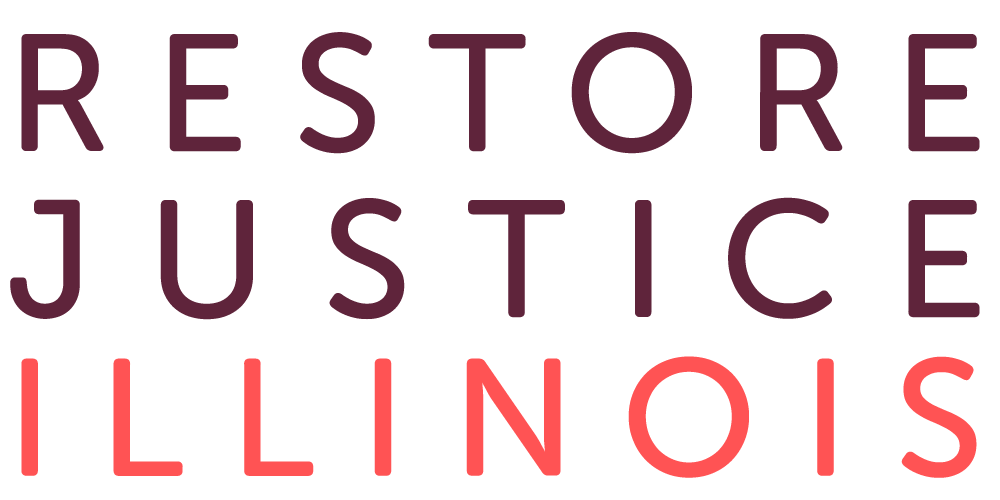MARCI SUELZER – 2020
DEMOCRATIC CANDIDATE FOR ILLINOIS’S 52ND HOUSE DISTRICT
Mandatory gun enhancements: Judges must add 15 years to the sentence of someone who possesses but does not use a firearm in the commission of a crime. In 2015, a new law made these enhancements discretionary for juveniles, but not adults. HB4376 (Ford) would make those mandatory gun enhancements discretionary for all offenders. (Do you support, oppose, or are you neutral on the bill? Thoughts welcome.)
Felony-murder rule: Illinois has a broad felony-murder statute that allows prosecution of individuals for murder in cases where they did not commit or plan to commit a murder, but committed another forcible felony that resulted in someone’s death. HB1615 (Slaughter) and SB2292 (Peters) would narrow the scope of Illinois’s felony-murder law. (Do you support, oppose, or are you neutral on the bill? Thoughts welcome.)
This is a difficult question to address because many times the statute is invoked in connection with gang activity. There is a code of silence that can make it difficult to determine who is culpable and who is a bystander. At what point does being a “bystander” make you culpable? (Witness the police officers standing by when another police office shot or knelt upon a person resulting in their death.) I believe that this might be an example of where prosecutorial discretion is a better route than amending the law itself. I would need to study the proposed laws much more carefully to provide a more definitive answer.
Accountability: Illinois law utilizes a theory of accountability throughout its criminal statutes. This theory allows individuals to be convicted of the same, more serious crime as their co-defendant/s in an underlying felony, even if they did not directly perpetrate or plan to perpetrate the more serious crime. If convicted, people who are accountable serve the same sentence as the primary actor in the offense. (Do you think we should abolish accountability theory, narrow the usage of accountability theory, or keep accountability as is?)
Earned sentencing credits: A 1998 law called Truth in Sentencing reduced or removed the opportunity for incarcerated individuals to earn “time off for good behavior.” The law has led to much longer actual “time served” in Illinois prisons and has removed incentives for rehabilitation. (Do you think we should restore earned sentencing credits to pre-1998 levels, restore some earned sentencing credits, or keep sentencing credits the same? General thoughts welcome.)
The old system of one day for each day served was flawed, but abolishing it altogether went too far in the other direction. I believe that there should be an opportunity to earn time off for good behavior, but that needs to go beyond just not getting “written up.” It needs to include criteria such as obtaining a GED or other degree/certification; demonstrating commitment to sobriety and addressing mental health challenges.
Mid-sentence parole review: Illinois has true “parole for release” for only a tiny fraction of the prison population (those of any age convicted before the abolition of parole for release in 1978, and those under age 21 convicted after June 2019, pursuant to Public Act 100-1182, the Youthful Offender Parole Law). The remainder of incarcerated people in Illinois do not have access to a parole review hearing at any point in their term of incarceration. What most call parole in Illinois is a post-incarceration period of Mandatory Supervised Release, which is added to a sentence and is not a path to be released earlier than the original sentence.(Should we restore parole as a system for early release broadly, or should we continue with no general parole where the incarcerated serve the entire sentence received no matter what circumstances may have changed?)
I believe that we should reinstate the option for true parole in Illinois, with the caveat that there would still be a period of mandatory supervision, which would include support for job searches, counseling, and referrals for housing.
Abolishing life without parole sentences for all juveniles. Unlike the majority of states, current law in Illinois still allows for a juvenile to receive a life sentence without the possibility of parole, despite young people having unique ability to change. A 2019 law implemented mid-sentence parole review for most individuals convicted of serious offenses before they turned 21. HB5670 (Mayfield) would expand on that law to prohibit life without parole sentences for anyone under the age of 21 when their crime was committed. Juveniles could still serve life in prison if the Prisoner Review Board rejects their application for early release. (Do you support, oppose, or are you neutral on this bill? Thoughts welcome.)
I support this HB5670 because it balances restorative justice with the nature of the crime. I also would want to see funding for mental health services that are trauma-competent to address the complex and generational trauma that often triggered the actions that resulted in the incarceration.
QUESTION 2: Proactive commutations by the Governor. Our current state prison population of 36,000 remains stubbornly high, largely because Illinois abolished mid-sentence parole review in 1978; people who otherwise might have been released from prison due to rehabilitation no longer have that option. The State Constitution gives the Governor authority to commute any sentence and release any person. Today, commutation is a reactive process. An incarcerated individual must submit a petition for review to the Governor, who tasks the Prisoner Review Board with creating a private recommendation, which the Governor may or may not act upon. Given the lack of mid-sentence parole review since 1978, do you think Governor Pritzker should make the reactive commutation system more proactive to systematically consider commutations? Potential groups to consider for proactive commutation include the elderly (over 65), those who have had excellent records while in prison, or those who have demonstrated remorse and have been rehabilitated but still face decades of incarceration. (Do you think Governor Pritzker should proactively review incarcerated individuals serving long sentences and assign them to the Prisoner Review Board to determine whether their sentences ought to be commuted given their unique circumstances? Do you think he should not do that? Thoughts welcome.)
I would rather see the restoration of mid-sentence parole process than increased commutations. My concern is that individuals who are released from prison often require a wide variety of supportive care and there are not provisions made for these services following commutations. I would favor a clemency hearing board that would take commutations out of the discretionary, political arena and would evaluate cases based on factors such as age, evidence of rehabilitation, lack of on-going gang involvement, and ability to connect with supportive services.
QUESTION 3: Centralizing IDOC procedures. Illinois has faced many serious class-action lawsuits over various aspects of prison conditions, and has been found in court-ordered reviews to have failed to meet some basic standards of care of people in custody. Illinois has a decentralized administrative system for the Illinois Department of Corrections where wardens of each of the 28 prisons have significant authority and autonomy. Do you think Illinois should have a more centralized system of administrative procedures? (Do you think IDOC should centralize procedures and promulgate rules as other states do or continue with a decentralized administrative system where wardens have significant authority and autonomy?)
StrongYes, I believe that a more centralized system would provide more accountability for prison conditions that the current decentralized one. However, there are very important caveats: (1) Prisons should not be privatized; (2) There must be adequate funding for the centralized system; and (3) There must be strict oversight to ensure that the department focuses on achieving and maintaining high-standards of care, including providing for transition from prison and non-punitive and restorative care for mentally ill prisoners (who along with POC are disproportionally represented in the prison system).
QUESTION 4: General views and personal anecdotes. When you think about our criminal legal system in Illinois (from policing to prosecution to sentencing to incarceration to re-entry), what do you see as the biggest opportunities for improvements in the next two years? Have you had experience witnessing the criminal legal system firsthand, via your own personal experience, or through that of a friend, family member, or constituent that you’d like to share? Please consider this an open-ended question to share any important anecdotes that inform your perspective.
There are two critical actions that must be taken to improve the criminal justice system: (1) confront and eliminate the systemic bias that results in POC and other minority groups being disproportionately being swept into the criminal justice system and (2) acknowledge and address the impact of trauma and economic inequity on POC and other minorities.
When I worked as a criminal defense attorney in Chicago, I saw first-hand the impact of systemic bias and disproportionate use of force. As a mental health/substance abuse counselor in a community behavioral health agency, I saw how adolescents of color were arrested for minor offenses when wealthier, white adolescents would not have been. And, I saw the clear connection between systemic racism, microaggressions, and trauma on the trajectory of children’s lives.
As an attorney and then as a counselor, I was able to make an impact on individuals’ lives. As a state legislator, I will be able to fight for reforms that can improve the lives of many people whose needs have not been effectively addressed.
QUESTION 5: Voting rights while incarcerated. Should people who are incarcerated in prison be allowed to vote? Those in county jails (before they are sentenced) are allowed to vote. Vermont and Maine allow those serving a sentence in state prison to vote.
I believe that incarcerated people should be allowed to vote. I can think of no compelling reason why being incarcerated should limit voting rights.

